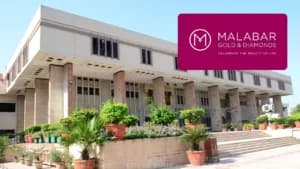The Supreme Court of India, on July 18, raised concerns over the fixed registration fee of ₹3,500 for the All India Bar Examination (AIBE), questioning whether the Bar Council of India (BCI) could introduce a fee relaxation scheme for financially weaker candidates.
A division bench comprising Justice PS Narasimha and Justice AS Chandurkar was hearing a writ petition that challenged the AIBE fee structure. The petition argued that the fee is excessively high and violates the Supreme Court’s earlier ruling dated July 30, 2024.
In the July 30 judgment, a bench led by Chief Justice DY Chandrachud, along with Justices JB Pardiwala and Manoj Misra, had ruled that enrolment fees for State Bar Councils must be capped at ₹750 for general category advocates and ₹125 for those belonging to Scheduled Castes and Scheduled Tribes.
Read also:- Bombay High Court: UAPA is a Deterrent Law, Not a Preventive Detention Legislation
During the current hearing, the advocate representing BCI defended the ₹3,500 fee by stating that following the Court’s earlier decision, the Council’s revenue sources have been restricted. This makes it difficult for BCI to perform its broader regulatory and professional functions.
Justice Narasimha, while maintaining the independence of BCI, remarked:
"Take an assessment and check. We don’t want to become the regulator — BCI is the body, which we respect. It has multiple obligations to fulfill for the legal fraternity."
The BCI's counsel further argued that the AIBE fee is relatively modest when compared to fees for other professional examinations. He added that most candidates take the exam before formally entering legal practice, while a few appear within two years of starting their careers.
Read also:- Fake 'Supreme Court of Karnataka' Account Shown in Court to Highlight Social Media Misuse
However, Justice Narasimha responded by highlighting the financial diversity in the legal profession:
"Fees of NLUs and other law schools have gone very high. They take loans and come into the profession. But for many, especially those practising in lower courts, ₹3,500 is a big amount. This needs deeper consideration."
He also remarked:
"We cannot have a general perspective. For someone practising in a district court, ₹3,500 is significant. In Delhi, that amount just disappears on a meal."
Statistics presented to the Court revealed the following AIBE participation numbers:
- AIBE 19 (Dec 2024): 2.29 lakh candidates
- AIBE 18 (Dec 2023): 1.44 lakh candidates
- AIBE 17 (Feb 2022): 1.71 lakh candidates
Reflecting on these figures, the bench questioned if BCI had any provision to support economically disadvantaged candidates. Justice Narasimha suggested:
"Is there any part of the scheme for those who cannot afford... Have you thought of it? Some funds you create and set aside... Somebody makes an application and seeks exemption — do you have a scheme like that? You must have."
Read also:- Delhi HC Seeks Police Response on Mohd. Khalid’s Discharge Plea in Ratan Lal Murder Linked to 2020 Riots
In response, the BCI counsel agreed to explore the possibility of such a support mechanism. However, he cautioned that any such scheme would need to be carefully designed to prevent misuse:
"A balanced scheme will be necessary. Otherwise, it may open floodgates for fee exemption applications."
The bench has scheduled the matter for further hearing after two weeks.
Case Details: Kuldeep Mishra vs. Bar Council of India
W.P.(C) No. 000767 / 2024















